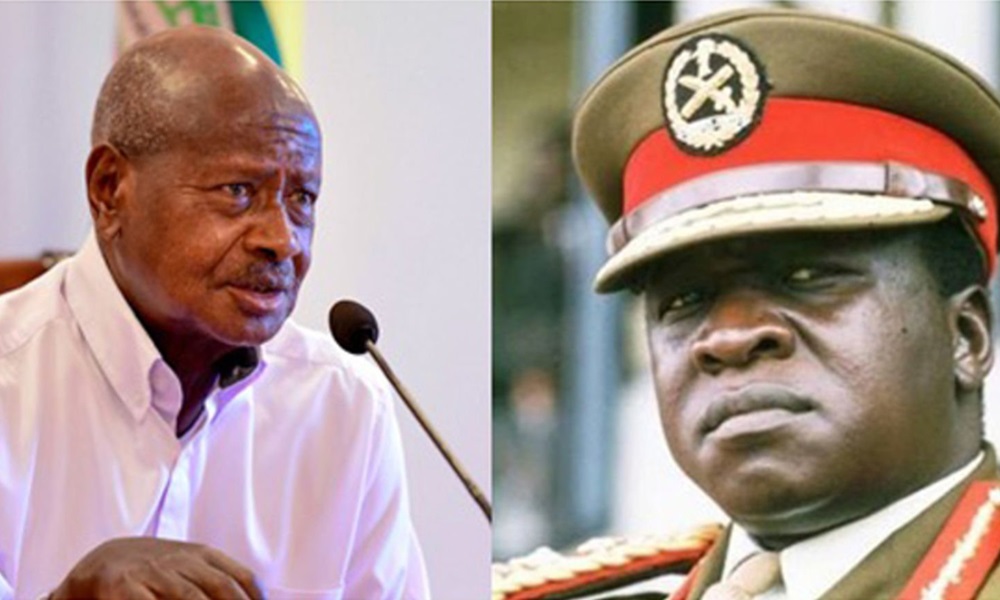Ben Ssebuguzi
President Yoweri Kaguta while meeting discontented traders at Kololo, had to bluntly speak facts to them that Uganda’s tax regime was deliberate and is intended to shape a new prosperous and sustainable country.
Our President was not speaking like a politician who is focusing on the next election, but he was speaking as a development consultant trying to make the country escape that vice of haemorrhage of trade deficit.
As Uganda kept changing regimes, different Presidents came with different economic policies. President Obote came with an import substitution policy from 1962-66 where many factories owned by Indians sprung up and Jinja became an industrial town.
However, Obote I’s policy was short-lived as President Idi Amin who succeeded him through a military coup came with an economic war of the expulsion of the entrepreneurial class which led to the collapse of many industries. This was the beginning of the haemorrhage which the NRM has been trying to address in a democratic manner.
President Amin’s major economic policy caused an economic decline of 30% because the people with technical know-how to produce goods and services were chased out. Worse still, the price of coffee and cotton also plummeted by 63 and 49 per cent respectively almost leading the economy to shut down since they were the main source of tax in the form of export tax.
Amin himself after chasing out the Asians who owned businesses, formed financial institutions like the Uganda Development Bank and Libyan Arab Uganda Bank for Foreign Trade and Development which was started on November 20 1972.
This saw the emergence of a click of a few beneficiaries called Mafutamingi class( a lot of oil) who acquired free shops and some started getting money from the Libyan Arab bank to start importing almost everything (kusaka). You can imagine how President Amin was too disoriented, instead of taking Ugandans abroad to equip them with industrial skills and thereafter give them capital, instead, he funded them to drain their economy through imports.
In the 1973 Amin government during the budget reading, Finance Minister J. Geria said that through the bank, the government had given out Shs 27 million to boost the economy and half of it was to fund Mafuta Mingi operations. In other words, the government started funding people to start importing almost everything a vice that has exacerbated causing our country to have a negative balance of trade.
The few opportunists who maximised mafuta mingi became a special wealth class and drove the best cars of that time like Peugeot 404 and 504 as a symbol of status not knowing that they were crippling their economy.
Suddenly the operation (mafuta mingi) was overtaken by those trading on the black market known as Magendo(smuggling), who started as a result of scarcity of day-to-day requirements like soap, salt and others. Thank God that NRM government policies have enabled us to stop importing such items by putting in place a conducive investment climate that attracts investors which has led to the setting up of many factories.
The NRM government since it came to power has done what it takes to dismantle smuggling, especially at the porous borders like Busia and Malaba in order to mobilise enough revenue for establishing development goods like roads. In simple terms, smuggling denies a country an opportunity to accelerate growth because of limited taxes.
A story is told of Magendo dealers in Busia who used to wash their motorcycles with beer.
Then Obote 2 was the first President to float foreign currency where the Bank of Uganda established Window 1 and Window 11. Window 1 was for industrial capital whereas Window 11 was for the general public. This policy of Obote was introduced in 1981 when the official exchange rate was $1- shs 80 while on the Kibanda market, it was bought at shs300.
The floating of foreign exchange saw the growth of importers of Japanese cars like; Toyota Dx with registration number plates like Nagoya, and Yokohama, among others.
Besides importing cars, they also played a part in the introduction of electrical appliances like double-decker radios, cassette players like Sankei, Sharp and DVDs which became must-have items in our houses.
As the Japan group were still showcasing, the Dubai group also started to come to cause more collateral damage. Thanks to General Yoweri Museveni who has made sure that we no longer import certain items like women’s hairstyles, Nigiina shoes, jeans, shirts, and some cosmetics among others hence making it the right time to safeguard our industries and create more jobs.
Certainly, you will agree with me that most of the people in shops in Kampala are acting as supermarkets for imports hence putting the economic future of our country at a big risk of lack of jobs and lack of enough foreign exchange which makes our economy susceptible and anaemic.
Being an importer is not necessarily a bad thing, but running a chronic and growing trade deficit over time creates a host of issues for the economy of the citizens.
In conclusion, I implore all the Bazzukulu of Uganda to support President Yoweri Museveni’s taxation measures which are geared to safeguard our economy and achievements.
Long live General Yoweri Museven, Long live Hajjat Hadijjah Uzeiye Namyalo our manager Office of the National Chairman and SPA/PA to the President.
The writer is the Head of Research at Office of the National Chairman (0NC)
Do you have a story or an opinion to share? Email us on: dailyexpressug@gmail.com Or follow the Daily Express on X Platform or WhatsApp for the latest updates.

